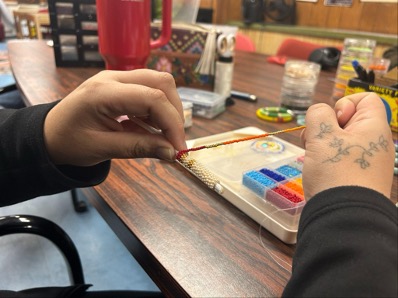
Since prehistoric times, human beings have used psychoactive drugs. The desire to alter one’s consciousness, in one manner or another, is an immutable aspect of human nature. To some extent, the United States government acknowledges this. Alcohol use is legal throughout the U.S. and recreational marijuana use is legal in a number of states. Yet, the human desire to use drugs is not limited to substances such as these; it extends to drugs that can fundamentally alter one’s perception of reality. These include drugs such as MDMA (ecstasy) and LSD, both of which are classified as Schedule I drugs by the Drug Enforcement Administration, meaning that they have “no currently accepted medical use and a high potential for abuse.” Today, these drugs are categorically unsafe. But they are unsafe primarily because they are unregulated, not because they, when taken in moderate portions, are physically addictive or toxic. These drugs pose health risks when they are mixed with other substances, used too frequently, taken in large quantities or ingested by people with pre-existing psychological illnesses. The majority of these health risks would be curbed if the recreational use of these drugs was legalized by the U.S. government and the production and sale of these drugs was strictly regulated.
Currently, drug deaths in America are increasing more quickly than they ever have. While the majority of these deaths are due specifically to the opioid epidemic, the obvious implication of this statistic is that U.S. drug policy is ineffective. As a result, it is necessary for us to reframe the way we view drug use and reconsider the way we advocate for policy change
Ecstasy is currently classified as one of the most significant drug threats in Massachusetts, and ecstasy-related deaths have become common occurrences throughout the world. This is particularly tragic, because there is no conclusive evidence that ecstasy, in reasonable quantities, is physically dangerous. Ecstasy is neurotoxic at high levels, but, as psychotherapist Gary Greenberg points out, so is Pepto-Bismol. Yet, because ecstasy is illegal, its manufacturing is unregulated and it is often contaminated with dangerous, potentially lethal, variants.
LSD inhabits a similar niche to ecstasy in terms of its status. It is undeniable that LSD can be a dangerous substance, but most of this danger stems from true abuse of the drug. Famed lyricist Gerry Goffin (known for his collaborations with Carole King) lost touch with reality due to his incessant LSD use, as did Syd Barrett, the original lead singer of Pink Floyd. Yet, both Goffin and Barrett used the substances in clearly unhealthy ways and had pre-existing psychological illnesses that the drug exacerbated the effects of. Contemporary research shows that, when taken in moderate quantities by psychologically healthy people, LSD does not cause severe mental health issues. Lifelong recurring flashbacks and permanent states of paranoia are, for the most part, myths. While LSD can cause users to have temporary feelings of anxiety and undergo intensely unpleasant experiences, there is no conclusive scientific evidence showing that it has permanent, negative long-term effects. In addition, serious injuries due to LSD-related accidents are extremely rare. Much like with ecstasy, the problems stemming from LSD use would be greatly minimized if LSD was legal and regulated — it would be extremely difficult for people to overdose on LSD or to obtain LSD if they were not psychologically fit to ingest it.
My point is not to argue that ecstasy and LSD (and other hallucinogenic drugs) should be used. In fact, in many circumstances, I think the choice to use these substances is unwise. But, for better or worse, people will continue to use these substance, be it to gain perspective on their lives or merely to have enjoyable experiences. We need to recognize that this is an inevitable aspect of human behavior and use that knowledge to create a safer, better world. Alcohol, despite its legality, continues to be a problem in the U.S. Yet, alcohol is nowhere near as dangerous to society as it was during prohibition. American citizens do not gamble with their lives every time they open a Sam Adams. Why can’t the same principle hold true for drugs such as ecstasy and LSD?
The core political question is not whether mind-altering substances should be used. While the decision not to use them is perfectly legitimate, the idea that this personal decision can be projected on an entire country is delusional and dangerous. People have always and will always use mind-altering substances — and these substances will always include those more powerful than alcohol and marijuana. The question is this: When our family members, friends, partners and children make substance-related choices that we disagree with, would we prefer to scold them or to bury them?
Jonah Dratfield is a Collegian columnist and can be reached at [email protected].



















Stimme der Vernunft • Apr 18, 2018 at 5:08 pm
Awesome article!I got the asperger syndrome which is uncurable and im traumatized from childhood.LSD is an great tool to surgeon the psyche,its like a scalpell.MDMA increases emotionalety and communication which is an fantastically treat to asperger because MDMA is the Opposite of Asperger. Im patiently but suffering waiting for the legalization because MDMA could be my only chance to get an normal life without botherings of asperger.Asperger is uncurable and the only effective way to deactivate the negative effects of asperger is MDMA.I hope politics get smart about this topic and end the horrible senseless and dangerous prohibition!
Sorry for my bad English
Adam '05 • Oct 25, 2017 at 4:54 pm
Well out. End the war!